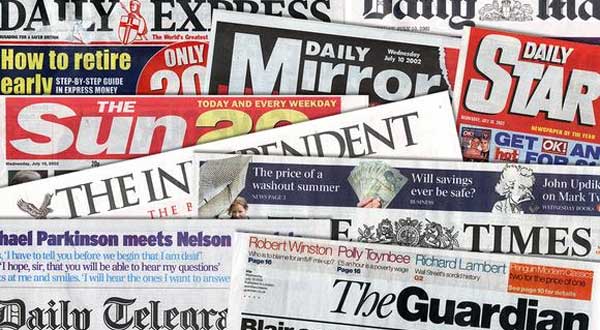More than two-thirds of those questioned said they had suffered threats of violence, a third cited police intimidation and 53 percent said they were subjected to online harassment, the report by Europe's leading human rights monitor said.
"It should therefore come as no surprise that the survey found high levels of self-censorship among journalists," the report said.
"Many are compelled to tone down controversial stories, or abandon them altogether," the report added, after sounding out reporters from five media associations, including Reporters Without Borders, in member states and non-member Belarus.
The council's secretary general Thorbjoern Jagland called on its 47 member states to fully implement its 2016 recommendation on affording journalists protection and safety in their work "to create a climate of open debate and free speech."
- 'Resolve is laudable' -
The study said that 87 percent of Turkish respondents reported being victims of targeted surveillance by state authorities, public officials or "other powerful figures" including media owners or advertisers.
The council said many reporters suffered stress, leading to depression or even paranoia. It added that 31 percent toned down a story and that 15 percent abandoned a reporting project altogether, and that 57 percent did not report incidents to police.
But 36 percent said such pressures made them more inclined to resist self-censorship and more determined to pursue their stories.
"Their resolve is laudable," the council said.
"Freedom of expression is one of the basic conditions for the progress of society. Without safeguards for the safety of journalists there can be no free media."
While conceding that the study was not necessarily representative of its member states as a whole, the council emphasised that the European Convention on Human Rights makes freedom of expression a "central means by which power is held to account."
"Different forms of violence against journalists have increased significantly over the last decade," the report concluded.
"Together with impunity for the perpetrators of unwarranted interference on journalists, these are among the most serious challenges facing media freedom today."
------------------------------------------------------------------------------------------------------------------------------------
"It should therefore come as no surprise that the survey found high levels of self-censorship among journalists," the report said.
"Many are compelled to tone down controversial stories, or abandon them altogether," the report added, after sounding out reporters from five media associations, including Reporters Without Borders, in member states and non-member Belarus.
The council's secretary general Thorbjoern Jagland called on its 47 member states to fully implement its 2016 recommendation on affording journalists protection and safety in their work "to create a climate of open debate and free speech."
- 'Resolve is laudable' -
The study said that 87 percent of Turkish respondents reported being victims of targeted surveillance by state authorities, public officials or "other powerful figures" including media owners or advertisers.
The council said many reporters suffered stress, leading to depression or even paranoia. It added that 31 percent toned down a story and that 15 percent abandoned a reporting project altogether, and that 57 percent did not report incidents to police.
But 36 percent said such pressures made them more inclined to resist self-censorship and more determined to pursue their stories.
"Their resolve is laudable," the council said.
"Freedom of expression is one of the basic conditions for the progress of society. Without safeguards for the safety of journalists there can be no free media."
While conceding that the study was not necessarily representative of its member states as a whole, the council emphasised that the European Convention on Human Rights makes freedom of expression a "central means by which power is held to account."
"Different forms of violence against journalists have increased significantly over the last decade," the report concluded.
"Together with impunity for the perpetrators of unwarranted interference on journalists, these are among the most serious challenges facing media freedom today."
------------------------------------------------------------------------------------------------------------------------------------









 Home
Home Politics
Politics











